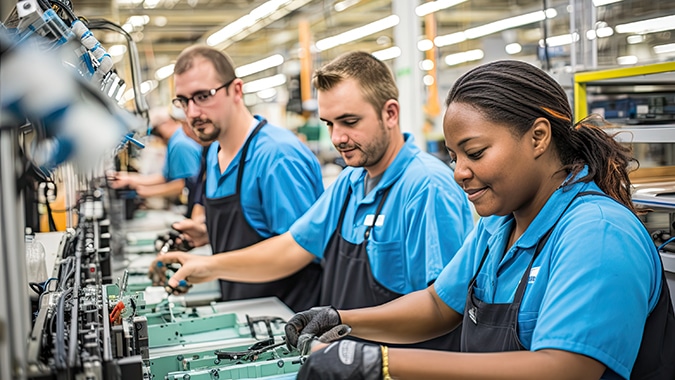Over 1,300 associations and businesses representing manufacturers of all sizes, including the National Association of Manufacturers and NJBIA, are calling on Congress to ensure the tax code supports the ability of businesses to create U.S. jobs and compete in the global economy.
In a letter to Congress, the coalition urged lawmakers to extend three tax policies vital to workers and America’s future: immediate R&D expensing, a pro-growth interest deductibility standard and full expensing.
“Although legislation has been introduced in both chambers in support of these policies, Congress must act immediately to extend these competitive tax policies,” the letter states. “Failing to do so will put hundreds of thousands of family-supporting jobs, cutting-edge innovation and pro-growth investments in America at risk.”
The group wrote that Congress should make the U.S. a global leader in innovation, incentivize job-creating investments and reinforce America’s competitiveness by:
Ensuring the tax code supports innovation: The private sector accounts for over 75% of total research and development spending, with small businesses alone accounting for approximately $90 billion of all private-sector R&D investments. With wages and salaries comprising approximately 75% of R&D spending, the R&D amortization requirement is first and foremost a jobs issue, the coalition noted. R&D jobs pay, on average, more than $155,000. Moreover, for every $1 billion in R&D spending, 17,000 jobs are supported.
Enabling businesses to finance growth: Prior to Jan. 1, 2022, businesses’ interest expense deductions were limited by section 163(j) to 30% of their earnings before interest, tax, depreciation, and amortization. Interest deductions are now limited to 30% of earnings before interest and tax. By excluding depreciation and amortization, the stricter EBIT standard acts as a tax on investment, making it more expensive for capital-intensive companies throughout the supply chain to finance job-creating growth.
Making permanent a key incentive for capital equipment purchases: A 100% deduction for the purchase of equipment and machinery in the tax year purchased was in place from 2017 through 2022. Congress enacted full expensing to spur investments and ensure that the U.S. is well-positioned to attract capital in a competitive global marketplace. However, full expensing began to phase out at the beginning of 2023 and will be eliminated completely by 2027.
“On behalf of the millions of American workers whose jobs depend on a competitive U.S. economy, we urge all members of Congress to work together by year’s end to seamlessly reinstate immediate R&D expensing, restore a pro-growth interest deductibility standard and extend full expensing,” the coalition wrote. “Doing so will secure the U.S. as a global leader in innovation, incentivize job-creating investments and reinforce America’s competitiveness on the world stage.”
Go here to read the entire Nov. 2 letter and see the signatories, which include NJBIA and 26 other New Jersey companies and trade groups.

